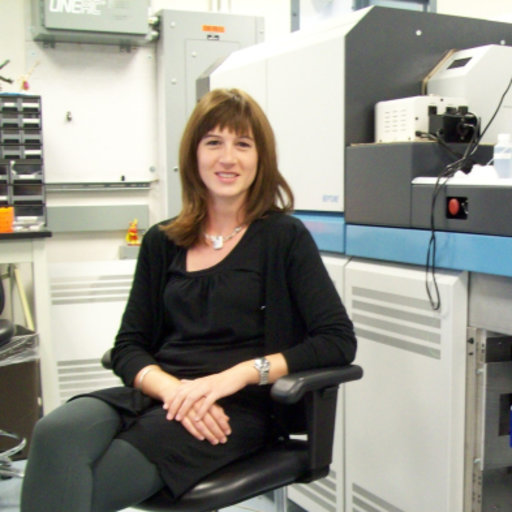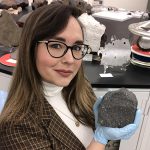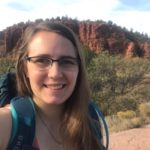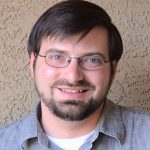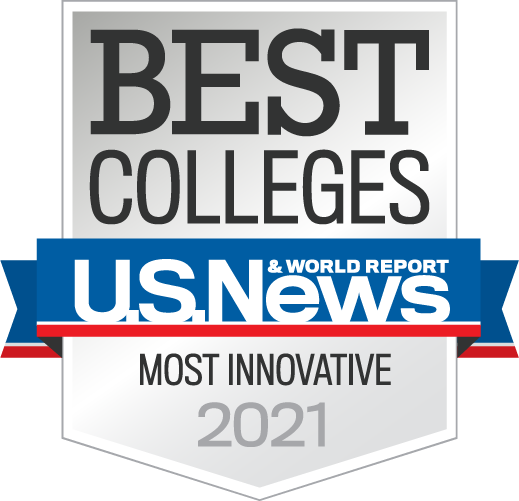Find out what some of the group's recent alumni have been working on!
Professor, University of Bayruth
(Post Doctoral Research Associate, ASU School of Earth & Space Exploration, 2007-2011)
Dr. Bouvier is interested in the chronology of planetary processes that took place during the first few million years of Solar System history such as the formation of the first condensates in the solar nebula, and the accretion and evolution of planetesimals.
Staff Scientist, Lawrence Livermore National Laboratory
(Ph.D. studies, ASU School of Earth & Space Exploration, 2007-2010)
Dr. Brennecka studies uranium isotope variations in Solar System materials, with a primary focus on how those variations affect early Solar System chronometers, as well as apparent nucleosynthetic anomalies in CAIs (calcium- and aluminum-rich inclusions).
Assistant Professor, Department of Geosciences, University of Alabama
(Post Doctoral Research Associate, ASU School of Earth & Space Exploration, 2014-2016)
Dr. Cartwright studies the formation of planetary regoliths and fluid processes in meteorites, as well as achondrite meteorites to understand the formation and evolution of their parent bodies and the Solar System as a whole.
Branch Chief of Curation at NASA ARES, Johnson Space Center
(Research Scientist, ASU School of Earth & Space Exploration, 2016-2024)
51 Pegasi b Postdoctoral Fellow, University of California at Los Angeles
(Ph.D. studies, ASU School of Earth & Space Exploration, 2013-2020)
Dr. Dunham analyzes the beryllium and boron isotopes of refractory materials from primitive meteorites in order to better constrain the processes that occurred in the extreme environment predating planetary formation in the early Solar System.
Analytical Chemist, Oak Ridge National Laboratory
(Ph.D. studies, ASU School of Earth & Space Exploration, 2013-2020)
Dr. Dunlap uses short-lived radionuclides such as Al/Mg and Mn/Cr to investigate the timing of melting and differentiation on early forming asteroids and planetesimals to better comprehend the formational timeline of the rocky bodies in our Solar System.
Geologist, Regulatory Compliance Officer and Strategist – Native Restoration Services, Inc.
(NASA Space Grant Undergraduate Fellow, ASU School of Earth & Space Exploration, 2013-2016)
Elizabeth Dybal's work involves restoration of native prairies, woodlands, and wetlands in northeastern Illinois.
Associate Professor, Department of Geological Sciences, University of Cape Town
(Associate Research Scientist, ASU School of Earth & Space Exploration, 2006-2012)
Dr. Janney's research involves the application of elemental, radiogenic isotope and "non-traditional" stable isotope techniques to understand the geochemical evolution of the Earth’s mantle and crust.
 Christian Kroemer
Christian Kroemer
(Barrett Honors College Undergraduate Student 2021-2022)
Christian's work in the ICGL focussed on high pressure minerals in a lunar meteorite to better understand impact processes on the Moon.
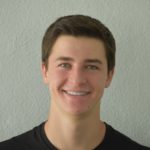
(Barrett Honors College Undergraduate Student 2020-2022)
Max's work in the ICGL utilized short-lived radionuclides (26Al-26Mg) to investigate the timing of planetesimal differentiation in the early Solar System, with a particular focus on angrite meteorites.
Research Scientist, Lunar and Planetary Institute (USRA) / NASA Johnson Space Center
(Ph.D. studies, ASU School of Earth & Space Exploration, 2011-2017)
Dr. Mane studies the hydrogen isotope composition of martian meteorites to acquire insight into martian water reservoirs. She also analyzes refractory inclusions found in primitive meteorites, considered to be the first solids to condense in our Solar System.
Mendenhall Research Fellow, USGS Denver Argon Geochronology Laboratory
(Ph.D. studies, ASU School of Earth & Space Exploration, 2011-2017)
Dr. Mercer performs thermochronological research in the Rocky Mountains, in addition to studying the timing of impact events on the Moon by using a laser microprobe to date NASA Apollo mission samples.
Misson Operations Specialist, Malin Space Science Systems Inc.
(M.S. Studies, ASU School of Earth & Space Exploration, 2021-2023)
In the ICGL, Nicole measured the Cr and Ti isotope composition of achondrite meteorites to better constrain the formational timeline of rocky bodies in our Solar System. She wass particularly interested in using mass-independant isotopic anomalies (eg 50Ti and 46Ti) in carbonaceous chondrites to model the nucleosynthetic reservoirs from which they may have been sourced.
(M.S. Studies, ASU School of Earth & Space Exploration, 2020-2022)
In the ICGL, Linnea applies short-lived chronometers (such as 26Al-26Mg, 53Mn and 53Cr) in primitive achondrites to investigate conditions in the early Solar System, including planetary differentiation.
(Ph.D. studies, ASU School of Earth & Space Exploration, 2016-2021)
Soumya measures Fe isotope fractionation and Si isotope composition in achondrite meteorites. Her Fe isotope work on aubrites, in particular, has provided new insight into the formation of metal nodules in these unique meteorites. She recently authored the article "Women Astronauts? How Ridiculous!" for the ASU Interplanetary Initiative Community in a Box Project.
Gerald D. Sisk Associate Professor of Isotope Geochemistry, University of Tennessee
(Academic Professional, ASU School of Earth & Space Exploration, 2012-2019)
Dr. Romaniello develops cutting edge applications of nontraditional stable and radiogenic isotopes in sedimentology, cosmochemistry, and medicine. The core of his research addresses how the Earth’s chemical and biological evolution has played out over the past 3.8 billion years.
Staff Scientist, Los Alamos National Laboratory
(Ph.D. studies, ASU School of Earth & Space Exploration, 2007-2012)
Dr. Sanborn analyzes nucleosynthetic anomalies to decipher petrogenetic histories of meteorites and the evolution of their associated parent bodies in the early Solar System, and determines isotopic constraints on the formation of the first solids and planetesimals.
Research Geologist, USGS Geology, Geophysics, & Geochemistry Science Center (Research Assistant Professor, ASU School of Earth & Space Exploration, 2014-2016) Dr. Souders' research integrates mineral geochemistry and geochronology to understand the origin and evolution of Earth's crust and differention of the mantle, and the provenance and diagenesis of detrital heavy minerals.
(M.S. studies, ASU School of Earth & Space Exploration, 2017-2019)
Gabriel's research involves the development of new analytical methods for the measurement of stable strontium isotopes, including laboratory geochemistry and multi-collector plasma mass spectrometry.
Founder and Research Scientist, PSI Labs
(Ph.D. studies, ASU School of Earth & Space Exploration, 2007-2012)
Dr. Spivak-Birndorff's research includes a heavy emphasis on different techniques of mass spectrometric analysis that are critical to the testing of both naturally occurring compounds and undesirable adulterants in medical cannabis.
Post Doctoral Research Associate, The Open University
(Post Doctoral Research Associate, ASU School of Earth & Space Exploration, 2015-2017)
Dr. Stephant's research focusses on understanding the origin of water on planetary bodies in our Solar System through analyses of the hydrogen isotope ratios and water contents of meteorites and lunar samples.
Carnegie Postdoctoral Fellow, Carnegie Institution for Science
(Ph.D. studies, ASU School of Earth & Space Exploration, 2015-2020)
Dr. Torrano measures the isotopic composition of calcium-aluminum-rich inclusions (CAIs), which were the first solids formed in the early Solar System, including Cr, Ti, and Mg stable isotope analyses to investigate the heterogeneity of the CAI-forming region.
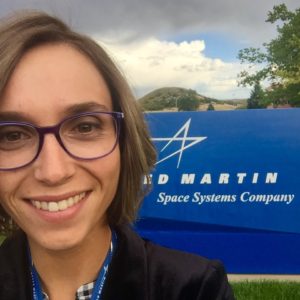 Kera Tucker
Kera Tucker
Senior Systems Engineer, Lockheed Martin
(M.S. studies, ASU School of Earth & Space Exploration, 2013-2015)
Kera Tucker works as a Systems Engineer for Lockheed Martin in the Space business area. She supports various spacecraft components at Lockheed's Denver, Colorado office.
Program Director, National Science Foundation
(Ph.D. studies, ASU School of Earth & Space Exploration, 2009-2012)
Dr. Williams serves as Program Directory for Petrology and Geochemistry and the National Science Foundation.


